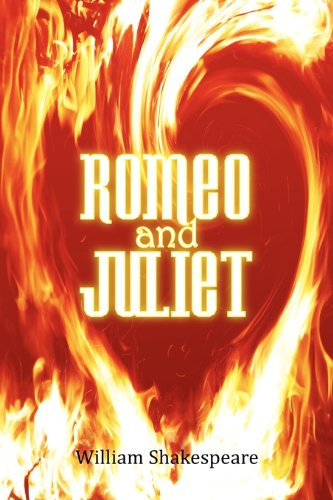All Nonfiction
- Bullying
- Books
- Academic
- Author Interviews
- Celebrity interviews
- College Articles
- College Essays
- Educator of the Year
- Heroes
- Interviews
- Memoir
- Personal Experience
- Sports
- Travel & Culture
All Opinions
- Bullying
- Current Events / Politics
- Discrimination
- Drugs / Alcohol / Smoking
- Entertainment / Celebrities
- Environment
- Love / Relationships
- Movies / Music / TV
- Pop Culture / Trends
- School / College
- Social Issues / Civics
- Spirituality / Religion
- Sports / Hobbies
All Hot Topics
- Bullying
- Community Service
- Environment
- Health
- Letters to the Editor
- Pride & Prejudice
- What Matters
- Back
Summer Guide
- Program Links
- Program Reviews
- Back
College Guide
- College Links
- College Reviews
- College Essays
- College Articles
- Back
Romeo and Juliet by William Shakespeare
While many readers would blame characters like Friar Lawrence and Tybalt for Romeo and Juliet’s’ tragic deaths, time is really the cause of this misfortune by the various events in which a few seconds made a whole world of difference. In Baz Luhrman’s modernized version of the classic Shakespearean play, Romeo and Juliet, there are a couple of different events in which the significance of time is shed under a very bright spotlight.
The first example of time is in the beginning acts of the play. Romeo is very much in love with a girl, Rosaline, who does not return his love. Mercutio persuades Romeo to attend a Capulet party by falsely promising him that Rosaline would be there. We see a scene where Romeo dunks his head in a sink of water. This shows that he has started over and all that took place in his past is behind him. Just then, he meets Juliet, the daughter of the rival family. But before either of them come to know that they are the son and daughter of rivaling families, Romeo and Juliet fall in love, becoming a vital part of each other’s lives. We can see this when Romeo describes Juliet’s beauty by saying she “doth teach torches to burn bright”. The thing with time though, is that it just happened to be the precise moment when Romeo wakes up from his dingy past of Rosaline, that he meets Juliet. Had he still been into Rosaline, he would have never been ready for Juliet, as she would have blended in with all the other women in the room.
Now, progressing through the movie, Romeo gets exiled to Mantua. Juliet can’t stand this, since her husband is so far away. Lord Capulet wants to marry her to young nobleman Paris. Friar Lawrence, who agreed to marry Romeo and Juliet, decided to give Juliet a potion that would make her appear dead during the time of the wedding, and wake up after. Balthazar, seeing Juliet “dead”, immediately takes off for Mantua to tell Romeo. Right when Romeo is leaving for Verona to see Juliet, the UPS truck arrives, carrying a letter from Friar John warning Romeo that Juliet is not actually dead. The split second of delay caused Romeo so much grief, and would alter the story completely. Had the UPS truck arrived just a moment earlier, Romeo would not have been so frantic about Juliet’s supposed death. He also would not have taken some actions that he did, which I will mention in the next paragraph.
Once Romeo reached Verona, he ran to the Capulet grave and mourned beside the lifeless Juliet. After a lot of sad words and memories, Romeo drank poison, which he picked up on the way, in hopes of joining Juliet in heaven. And in the same second that the poison seeped into Romeo’s lips, Juliet awakes. She is pleased at first that the plan worked to her advantage, but when she sees Romeo severely shaking, she realized what happened, and so did Romeo. Juliet’s plan to see Romeo worked, but not entirely the way she wanted it to. Just the one second made all the difference. The essence of time in this particular scene is, by far, the most consequential in the entire movie, considering that Juliet’s awakening was half a second late for a “happily ever after” ending.
Time is definitely the abstract element that takes responsibility for the two star-crossed lovers’ deaths. Not one person or thing, but rather an element of life, time is the one in charge. For there were many incidents when a second changed the future, but every time they were either a second early, or a second late, but never…on time.
Similar Articles
JOIN THE DISCUSSION
This article has 1 comment.
You've got some interesting trains of thought here.
It definitely was Romeo and Juliet's own faults, but I feel it was more of a literary device than anything any one character could have or could not have done. It was the story Shakespeare wanted to tell, and ultimately if someone did something differently, the end result would have still been the same.
Slightly off topic, I would love a parody of The Hangover starring Romeo, Mercutio and Benvolio. It could be hilariously ironic.

